George Orwell and Howard Zinn on Patriotism and Nationalism
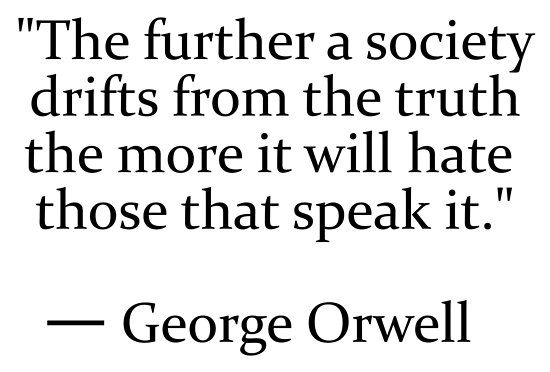
I first posted an abbreviated version of this essay on Independence Day in 2007. As the years go by, it seems to me that we should be paying more attention to the writings of these brilliant authors. They force us to re-examine our assumptions while challenging us to not to be swept away by blind loyalty or political conformity. Regardless of one's political affiliation and the direction of prevailing political winds, it is but our duty as citizens to do just that in a country whose foundation rests upon the notion of dissent.
I have added content and tried to improve the original essay.
Writing in May 1945 in his remarkable essay "Notes on Nationalism" while he was living in Morocco and just as World War II was ending in Europe, author George Orwell made a distinction between patriotism and nationalism, two concepts often used interchangeably. In it, Orwell defines patriotism as loyalty to one's country and guiding principles. Nationalism, he felt strongly, was an idea for individuals obsessed with the acquisition of more power
Nationalism is not to be confused with patriotism. Both words are normally used in so vague a way that any definition is liable to be challenged, but one must draw a distinction between them, since two different and even opposing ideas are involved. By "patriotism" I mean devotion to a particular place and a particular way of life, which one believes to be the best in the world but has no wish to force on other people.
Patriotism is of its nature defensive, both militarily and culturally. Nationalism, on the other hand, is inseparable from the desire for power. The abiding purpose of every nationalist is to secure more power and more prestige, not for himself but for the nation or other unit in which he has chosen to sink his own individuality.
In two other essays, Orwell writes at length about these concepts. That he was somewhat of a contrarian should not surprise anyone who is familiar with his many books and essays. However uncomfortable, his internationalist views co-existed with his love of many aspects of life in England. In "My Country Right or Left" (1940), he discusses his inner conflicts and how to reconcile his love for country and pacifist views. In a later essay, "The Lion and the Unicorn: Socialism and the English Genius" (1941), he writes that there in no contradiction between being a socialist and a patriot.
Is the expression of nationalism in itself, as Orwell suggests, necessarily an undesirable urge? Not if seen in its proper context. After all, the desire to define a group's identity and live under some form of societal organization gave birth to the idea of the nation-state and hundreds of years later, led to mass decolonisation and independence for hundreds of millions of people around the world - particularly in the period immediately following World War I and leading to a trend which accelerated over the next several decades after that brutal war.

A bombardier in World War II, historian Howard Zinn came to detest war and killing. In 2006, he wrote an article titled "The Scourge of Nationalism" in the Progressive magazine in which he criticized the American obsession with the idea of nationalism and how it manifested itself in American foreign policy
On this July 4, we would do well to renounce nationalism and all its symbols: its flags, its pledges of allegiance, its anthems, its insistence in song that God must single out America to be blessed. Is not nationalism - that devotion to a flag, an anthem, a boundary so fierce it engenders mass murder - one of the great evils of our time, along with racism, along with religious hatred? These ways of thinking - cultivated, nurtured, indoctrinated from childhood on - have been useful to those in power, and deadly for those out of power.
National spirit can be benign in a country that is small and lacking both in military power and a hunger for expansion (Switzerland, Norway, Costa Rica and many more). But in a nation like ours—huge, possessing thousands of weapons of mass destruction—what might have been harmless pride becomes an arrogant nationalism dangerous to others and to ourselves.
Our citizenry has been brought up to see our nation as different from others, an exception in the world, uniquely moral, expanding into other lands in order to bring civilization, liberty, democracy.
That self-deception started early.
__________________________________________________
Pictured above in 1945 is 2nd Lieutenant Howard Zinn, bombardier, Army Air Force in England. It was the year World War II ended.
Zinn didn't condemn the kind of benign nationalism that exists in smaller countries lacking the technological wherewithal or the pernicious desire towards expansionism. He didn't explicitly state it but agreed that if nationalism is the celebration of a common culture, shared history, and similar experiences or of traditions, language, and ethnicity, he wouldn't offer too many objections to this definition of an imagined community. In countries where this wasn't an evolutionary process, and which came into being without the pre-requisite conditions for the creation of a nation-state, the results have been disastrous.
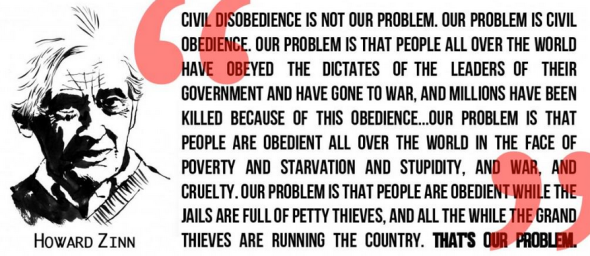
The old Soviet Union comes to mind - a country that disintegrated for many reasons but also, importantly, perhaps because it became a state before it became a nation. In the United States, given its size and propensity towards expansionism since its early years, Zinn saw a strain in the American character that he felt no pride in and found a country full of contradictions. From the early English settlers in this country to the years when Manifest Destiny was all the rage in the mid-19th century to our recent ill-advised adventures in Afghanistan and Iraq, Zinn saw an American desire to dominate other peoples in direct contrast to its professed aims of 'liberty,' 'democracy,' and 'freedom.'
In early 2004, I wrote this essay "Is the United States Imperialist?" (DK link), one which directly addressed the concerns raised above by Zinn
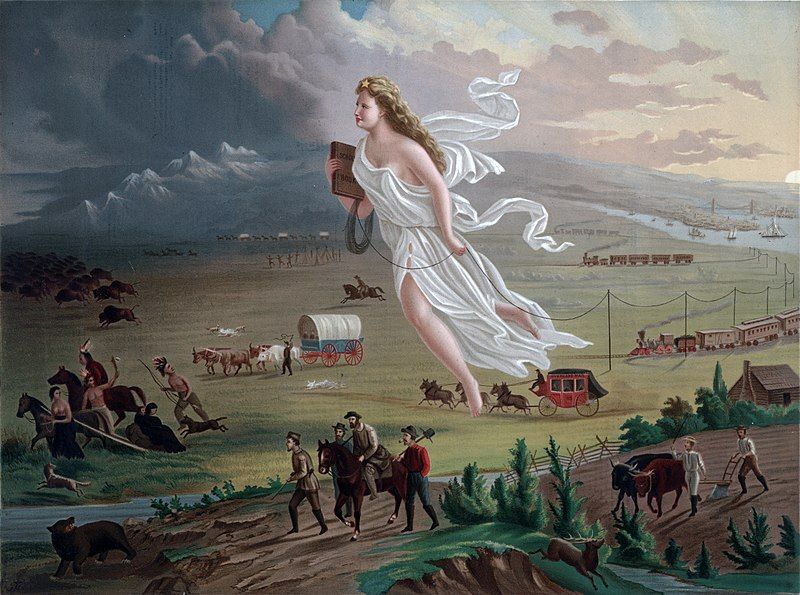
From Thucydides to Machiavelli to Bismarck to Winston Churchill to Charles de Gaulle to George Kennan on down, historians, theorists, and politicians have offered real lessons and, importantly, caution flags to our leaders. It has become a cliche to suggest that the United States has never been and never will be an imperialist nation - damaging historical evidence to the contrary. Our kids are taught that from an early age. It is ingrained in our bones. And too many of our leaders have often perpetuated this myth by painting our global actions in the best possible light. We never seek to dominate and exploit other nations. We are Americans, they tell us, and not a hegemonic power conniving to stifle other cultures. Our role is to assist, enlighten, reform, and lift up other nations.
It is indeed our Manifest Destiny.
__________________________________________________
The above painting shows "Manifest Destiny," the religious belief that the United States should expand from the Atlantic Ocean to the Pacific Ocean in the name of God. In 1872 artist John Gast painted a popular scene of people moving west that captured the view of Americans at the time. Called "Spirit of the Frontier" and widely distributed as an engraving portrayed settlers moving west, guided and protected by a goddess-like figure of Columbia and aided by technology (railways, telegraphs), driving Native Americans and bison into obscurity. It is also important to note that the angel is bringing "light," as witnessed on the eastern side of the painting as she travels towards the "darkened" west.

During the Great Depression and the years in which this country was involved in the Second World War, leaders like President Franklin Roosevelt mobilized the entire country and this successful mobilization of men, women, material, and minds allowed the United States and its allies to ultimately prevail over the dark threat of Fascism. In the five-decades-long Cold War from 1946-1991, leaders of both political parties appealed to the American people to join hands in an ideological struggle against an external threat and rallied this country to 'contain' Communism. Contentious as that policy was domestically - and often carried to extremes during periods such as the McCarthy Era in the 1940s and 1950s - it was largely free of excessive religious rhetoric.
If you've ever seen the movie The Spy Who Came in From the Cold based on John le Carre's famous spy thriller novel, you'll remember this unforgettable exchange between Alec Leamas, the novel's cynical, self-loathing protagonist played by actor Richard Burton and Nan Perry, an idealistic British Communist played by actress Claire Bloom, who is unaware of the cloak and dagger world of high-stakes espionage
[video:https://www.youtube.com/watch?v=nOUtFzeMhhA width:670 height:360]
Spies Are ScumWhat the hell do you think spies are? Moral philosophers measuring everything they do against the word of God or Karl Marx? They're not! They're just a bunch of seedy, squalid bastards like me: little men, drunkards, queers, henpecked husbands, civil servants playing cowboys and Indians to brighten their rotten little lives. Do you think they sit like monks in a cell, balancing right against wrong? Yesterday I would have killed Mundt because I thought him evil and an enemy. But not today. Today he is evil and my friend. London needs him. They need him so that the great, moronic masses you admire so much can sleep soundly in their flea-bitten beds again. They need him for the safety of ordinary, crummy people like you and me...
In 2006, Zinn reserved his harshest words for the likes of George W. Bush and Dick Cheney for their distinctly non-secularist foreign policies
How many times have we heard President Bush tell the troops that if they die, if they return without arms or legs, or blinded, it is for "liberty," for "democracy"? And nationalism is given a special virulence when it is said to be blessed by Providence. Today we have a president, invading two countries in four years, who announced on the campaign trail in 2004 that God speaks through him.
We need to refute the idea that our nation is different from, morally superior to, the other imperial powers of world history.

During the Bush Years - and ever since that fateful day on September 11, 2001 - discussions of American nationalism in a complicit media frequently degenerated into arguments over whether this country was more superior in its way of life when compared to others.
Myths last a long time. However, whatever remaining claims the United States had to a "superior morality" quickly evaporated after the Iraq War - and probably well before it. A natural extension of the xenophobia and policies that flowed from this attitude were brilliantly captured in this article by Hendrik Hertzberg in the New Yorker magazine
More than anyone else, including his mentor and departed co-conspirator, Donald Rumsfeld, Cheney has been the intellectual author and bureaucratic facilitator of the crimes and misdemeanors that have inflicted unprecedented disgrace on our country’s moral and political standing: the casual trashing of habeas corpus and the Geneva Conventions; the claim of authority to seize suspects, including American citizens, and imprison them indefinitely and incommunicado, with no right to due process of law; the outright encouragement of “cruel,” “inhuman,” and “degrading” treatment of prisoners; the use of undoubted torture, including waterboarding (Cheney: “a no-brainer for me”), which for a century the United States had prosecuted as a war crime; and, of course, the bloody, nightmarish Iraq war itself, launched under false pretenses, conducted with stupefying incompetence, and escalated long after public support for it had evaporated, at the cost of scores of thousands of lives, nearly half a trillion dollars, and the crippling of America’s armed forces, which no longer overawe and will take years to rebuild.
__________________________________________________
The above sketch shows a person being waterboarded during the Spanish Inquisition.
It was the emergence of this kind of 'virulent' nationalism that once compelled someone like political commentator Keith Olbermann to offer this Special Comment (go to 8:06 mark of video) in which he quoted Lord Protector Oliver Cromwell in sending a message to the Bush Administration
You have sat too long for any good you have been doing lately... depart, I say; and let us have done with you. In the name of God, go!
__________________________________________________
In retrospect, one might ask: whatever the hell happened to "moralists" like Keith Olbermann, or for that matter "political saviors" like Howard Dean? One of the by-products of the 2016 Sanders Campaign was that in addition to highlighting the corrupt inner workings of the political and financial system, it exposed, along with tens of thousands of others, people like Olbermann and Dean as nothing more than unprincipled hypocrites, partisan hacks, and phony conformists. When the opposition engages in unconstitutional behavior, their outrage meters are off the scale. When one's own side does the same thing, it is met with deflection or deafening silence by sporting political blinders. That's where we are today in the Democratic Party.

More than a decade ago on July 4th, Zinn found that sham of an administration openly flouting the rule of law and true to form, attempting to, though failing miserably to stifle dissent - an idea, coincidentally, central to the very basis of this country's foundation. Offering a cautionary note of restraint and self-reflection, he reminded us that excessive or 'ultra' nationalism could be quite dangerous to a country's long-term democratic health.
Orwell wrote his essay decades earlier. He could have as easily been describing today's delusional, irrational, and, yes, in some instances, racist members of the political establishment and their many clueless supporters
The nationalist not only does not disapprove of atrocities committed by his own side, but he has a remarkable capacity for not even hearing about them... every nationalist is haunted by the belief that the past can be altered. He spends part of his time in a fantasy world in which things happen as they should...
Nationalism is power-hunger tempered by self-deception. Every nationalist is capable of the most flagrant dishonesty, but he is also -- since he is conscious of serving something bigger than himself -- unshakeably certain of being in the right.
Howard Zinn was a national treasure who answered the call of duty when it came in the 1940s. Contrary to popular perception, he was not a pessimist. We need more people like him to shine the light on this country's achievements as well as its shortcomings. We have enough phony, flag-waving, ultra-nationalists in this country.
As former Undersecretary-General of the United Nations, Brian Urquhart, noted in this excellent article in the New York Review of Books several years ago
The word "nationalism" never quite seemed to fit the United States, where continental vastness and enormous power have hitherto been tempered by an often-expressed distaste for empire and by the notion of world leadership by example. Two American presidents, Woodrow Wilson and Franklin Roosevelt, both sponsored world organizations whose primary objective was to contain and disperse the aggressive force of nationalism. In the first years of the twenty-first century, however, in a dramatic departure from traditional policy, the spirit of unilateralism and militant nationalism began to dominate Washington’s policies and attitudes toward the outside world.
Reaction to the attacks of September 11, 2001, gave new force and a new direction to this change. Anatol Lieven’s America Right or Wrong: An Anatomy of American Nationalism examines the roots of longstanding American nationalistic tendencies that have given public support to this fundamental change in United States policy.
If I can summarize George Orwell's and Howard Zinn's important messages, it would be this: it is useful, now and then, for every country to take a good look at itself in the mirror and never be afraid to air its dirty laundry even as it celebrates its many accomplishments.

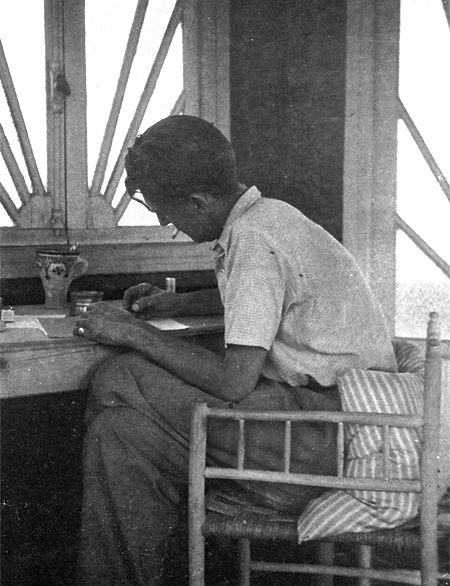

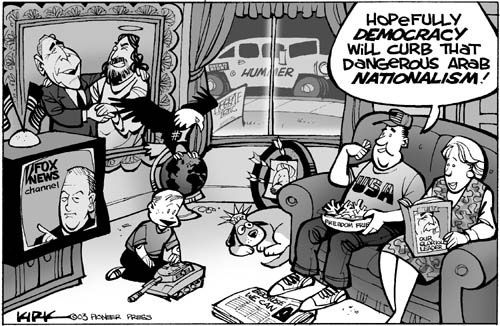
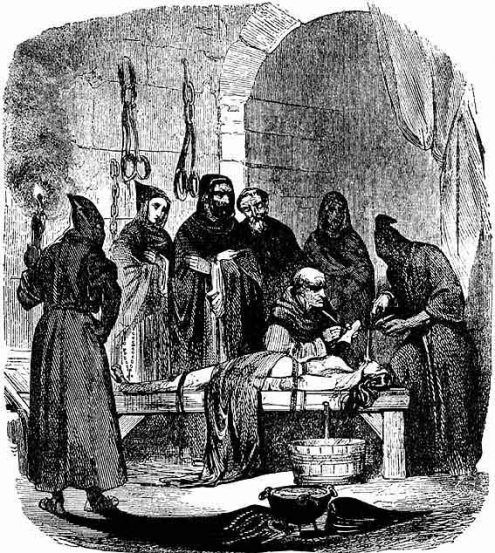
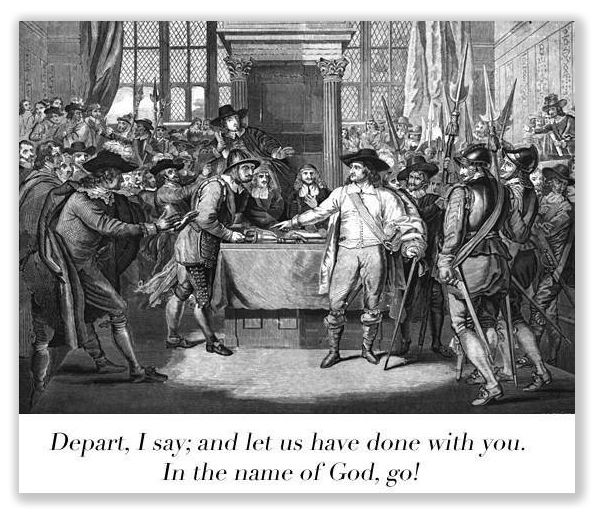
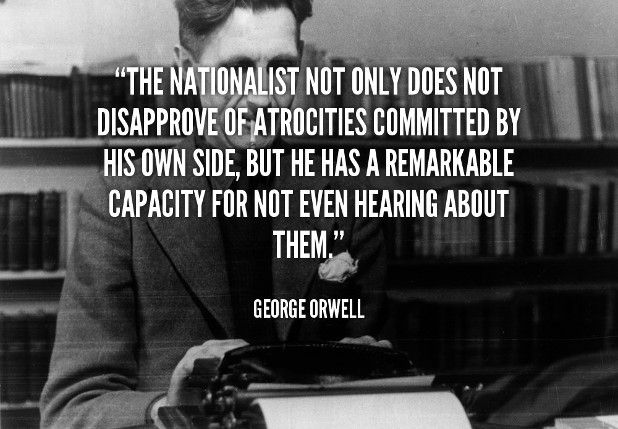
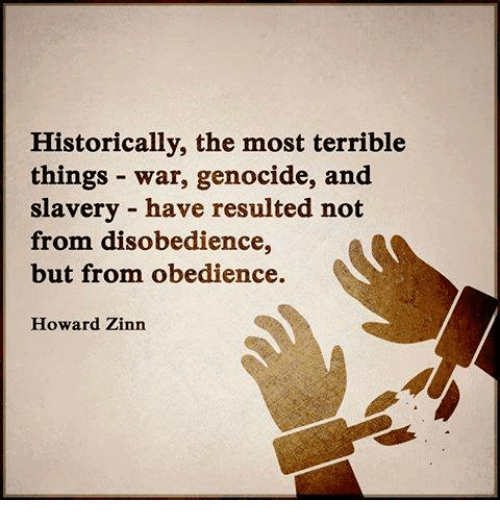

Comments
"Columbia"
In this article, Howard Zinn quotes from "Columbia," a famous poem by poet, novelist, and social critic Langston Hughes.
A riddle wrapped in a mystery inside an enigma
Important Quotes by George Orwell
He was, in my opinion, the best political writer of the 20th century.
Know for his conciseness, clarity of language, and intellectual honesty, he had many imitators. George Packer, an accomplished writer in his own right who writes for the New Yorker magazine, once tried to mimic Orwell's writing style. He gave up after struggling to write one page.
A riddle wrapped in a mystery inside an enigma
evening jnh...
excellent work!
Thank You, joe
Other Than Noam Chomsky, Chris Hedges, and perhaps a few others, there aren't too many honest public intellectuals left. Howard Zinn certainly was one; George Orwell being in a class of his own.
In recent years, television commentators like Chris Hayes, Rachel Maddow, Keith Olbermann et al - all of whom could be considered in the past as being somewhat sympathetic to at least a few leftist issues - have sold out to the Almighty Dollar. Whatever leftist impulses they might have once had were defined more by anti-Bushism rather than being beneficial to progressive causes.
A riddle wrapped in a mystery inside an enigma
Thanks for this, JnH~~
We need constant reminders in order to stay vigilant. Zinn and Orwell keep our feet on the ground. On this July 4th, I am a patriot. There is no room for nationalism in my life.

"The “jumpers” reminded us that one day we will all face only one choice and that is how we will die, not how we will live." Chris Hedges on 9/11
A Little Dose of Reality Never Hurt Anyone
When I lived in London as a grad student in the mid-1990s, the wide gap between how the Brits and others viewed US foreign policy actions (generally despised) vs their opinion of ordinary Americans (perceived as friendly) became quite evident.
Thanks.
A riddle wrapped in a mystery inside an enigma
excellent piece
I look forward to reading more deeply later today. Truth speakers are quickly weeded off media outlets today.
“Until justice rolls down like water and righteousness like a mighty stream.”
Spin Has Always Been an Integral Part of Politics
That said, the level of deception (lies, in not-so-polite language) has reached new heights. It was often said of George Orwell that he wasn't afraid of facing "unpleasant truths." That approach is never as clear as in his terrific, semi-autobiographical novel, Burmese Days, of the five years he spent as a policeman working for the British Imperial Police in Burma, now Myanmar.
As all of you know, Orwell never attended college. Soon after he graduated from Eton College (high school), he left for Burma when he was 19 years old. At the time, Burma was administered as a province of British India.
A riddle wrapped in a mystery inside an enigma
“On the road to Mandalay, where the flyin'-fishes play”
Recalling Rudyard Kipling’s Cockney soldier and his paean to the charms of the Burmese provincial capital under British India.
https://en.wikipedia.org/wiki/Mandalay_%28poem%29
https://en.wikisource.org/wiki/Mandalay
George Orwell's Essay on Rudyard Kipling
Orwell didn't much care for Kipling's politics. He thought that Kipling was too close to the British establishment of the day (particularly the Royal Family) and an apologist for British Imperialism - something he railed against in Burmese Days based on his experiences as a policeman in Burma.
However, he also praised Kipling - perhaps much to the chagrin of his fellow leftists - for being a wonderful writer and for actually contributing words and phrases to the English language. Kipling won the 1907 Nobel Prize in Literature.
By the way, Kipling's famous poem "If," written about the failed 1895 "Jameson Raid" during the period of the Boer Wars in the southern part of Africa, was voted as the most popular poem in England in the mid-1990s.
If you can keep your head when all about you
Are losing theirs and blaming it on you,
If you can trust yourself when all men doubt you,
But make allowance for their doubting too;
If you can wait and not be tired by waiting,
Or being lied about, don’t deal in lies,
Or being hated, don’t give way to hating,
And yet don’t look too good, nor talk too wise
A riddle wrapped in a mystery inside an enigma
Thanks for adding even more enlightening details
BTW, that would be the
20071907 Nobel prize for literature, of course.When I was four or so, my dad read me the two Kipling children’s tales featuring the little Neolithic girl Taffimai — “How the First Letter Was Written” and “How the Alphabet Was Made” from Just So Stories.
http://www.kiplingsociety.co.uk/rg_firstletter1.htm
Thanks, I Corrected the Typo
Indeed, Rudyard Kipling did win the Nobel Prize for Literature in 1907. 42 years old at the time, he was the youngest recipient to date and the first English-language writer to win it.
He was awarded the prize
As you know, Sinclair Lewis was the first American writer to win it in 1930.
A riddle wrapped in a mystery inside an enigma
The poem that brackets it, "Merrow Down"
is deceptively simple, but emotionally profound. The last verse (of part II) is a muted cry of deep and terrible grief.
There is no justice. There can be no peace.
Excellent Reprise of Excellent Essay
I remembered this essay! Back then, there were so many interesting essays at TOP. To paraphrase Orwell: The further a Democratic Party Blog drifts from the truth, the more it will hate those who diary about it.
Happy 4th.
Thanks, jobu. Hope You're Having a Great July 4th
DK was an interesting place in the early years. Those who stifle dissent soon find out that their world will ultimately degenerate into one of mediocrity. As Howard Zinn eloquently pointed out, it is blind obedience - not disobedience - that leads to disaster, particularly in the realm of foreign policy.
There is more to life than simply yearning for order and an obsession with "making the trains run on time."
A riddle wrapped in a mystery inside an enigma
The abyss stared back...
We have become that which the founders/revolutionaries fought and died against, colonial repression, empiricism, non-representation. The concept of Manifest Destiny has grown to envelope the world. That being proof that a people must stay ever vigilant for the well intended shall become corrupted if not watched over. That seems to be the culmination of all forms of government attended by human nature and that is unfortunate. Ill intentions rise as the good acquiesce.
The question then becomes, if we abolish and form a new government, how to prevent that pattern from repeating when most that seek office are ultimately driven by wealth and power? I believe that until we solve that conundrum of human nature we are doomed to a reality of inequality and injustice as modern governance works for those that can afford to buy it.
Thanks for this great piece JnH, we are truly graced to have you here with us.
Many Thanks for Your Comments, JtC
It's been my privilege to be a small part of this blog. From only a bit over two years ago, caucus99percent has grown from a small community of about 150 to over 2,500 members. Early next year, when the 2020 Campaign begins and heats up, I wouldn't be shocked if c99% sees another spike in membership.
That is largely due to the hard work put in by you, joe shikspack, gulfgal98, dkmich, blog moderators, and others who contribute without asking anything in return. I'd be remiss if I didn't mention the hard work put in by many great writers who enlighten and educate us every day. They write with passion, conviction, and put in a great deal of time and effort in their postings.
Thanks for keeping this place afloat.
A riddle wrapped in a mystery inside an enigma
Amen! Seconding every word, and then some. n/t
that's one of the kindest, nicest and friendliest civil
#
exchange of thoughts. It lifts up to read it and being witness. Thanks JtC and JnH.
https://www.euronews.com/live
Very nice essay (and presentation)!!
Your effort is evident.
Thanks, GreyWolf
In one respect, I think the end of the Cold War in the early 1990s was a disaster for many democracies.
For all of its imperfections - and there were many - the presence of the Soviet Union presented an alternative. During the years of the Great Depression, when the capitalist system was disintegrating at an alarming speed, many Americans looked to the USSR as a possible alternative. The Cold War years saw public intellectuals shine the light on the West's shortcomings and regardless of one's political leanings, there was a healthy debate about the direction of western societies. In fact, some of the best literature comes from that period of introspection and conflict.
A lot of it was lost during the triumphalism that was so evident after the Cold War ended. The political debate in the 1990s and 2000s was largely about incrementalism, not about structural change. During this period, the balance of power shifted towards corporations and big money. Not until Bernie's 2016 Campaign was someone willing to stand up and at least challenge some elements of the system we currently live under.
That's something we can all celebrate.
A riddle wrapped in a mystery inside an enigma
My country, right or wrong...
Has always struck me as dangerously cultish behavior.
It sets the wrong tone, and creates the idea that if wrong is done by a country it still deserves support. (Even the benign "If wrong, to be made right" suggests that loyalty to the country is more important than doing the right thing.)
We see the same attitude in political parties, bad marriages, and religions.
The elevation of anything beyond criticism engenders and maintains corruption. For if no-one can question the base assumption, there's a lot that can be explained away.
[video:https://www.youtube.com/watch?v=GCmYVRNg9ug]
I do not pretend I know what I do not know.
Amending Commodore Stephan Decatur's Famous Rallying Cry
As George Orwell pointed out, nationalists refuse to admit any flaws or faults with their own country or entertain any criticism.
You can read more about Decatur's war cry and its significance in history.
Thanks for your excellent comment, DMW.
A riddle wrapped in a mystery inside an enigma
Awesome work!
The Orwell quotes are spot on. This is the one I find the most relevant to the time period.
In times of universal deceit, telling the truth will be a revolutionary act
This is why we saw Facebook and Google change their algorithms to keep the websites that are telling us the truth from being read. WSWS has seen its traffic decrease by 90%. This is also why net neutrality has been gutted. With all the increased propaganda flying since The Clinton Creature lost the PTB are doing everything that they can to get people to give their permission for us to go to war with Russia. And Iran and to continue to fight the bogus war of terror against ISIS, the newest boogie man that they created to keep people afraid so that they don't question the need for war.
This applies to whatever the media wants us to be focusing on. Every time there is an important issue that they don't want us to be paying attention to they create a new distraction for us. Like just as the IG report that showed how the FBI rigged its investigation into Hillary's private email server came out there was the sudden focus on what was happening with immigrant children being separated from their parents even though the Trump administration had stopped doing it after they had been doing it for 6 weeks. Now what is the media focusing on again? Russian interference with the election with the senate report on it.
And now with people having a great time in Russia during the World Cup and seeing that Russia isn't the worst place to visit the the U.K. trotted out a new fake story on how two more people got poisoned by, wait for it, Novichok the most deadliest nerve agent in the world! Ayup! Somehow two people visited Salisbury, but waited a few days until they got back to their home in Amesbury a town 12 miles away. Funny how people were saying that there would be a false flag event during the World Cup.
Great to see you posting again.
The message echoes from Gaza back to the US. “Starving people is fine.”
Thanks, snoopy
Hopefully, in the next few months, the Mueller Investigation is going to wrap up and we can thankfully move to a discussion of substantive issues. Will the Democrats quit their "Russia, Russia, Russia" cry? I doubt it, particularly if they're not successful in winning control of the US House and US Senate in November 2018.
The sooner this freak show comes to an end, the better off everyone will be.
A riddle wrapped in a mystery inside an enigma